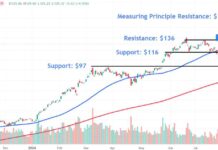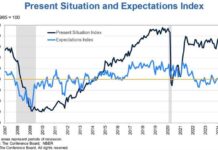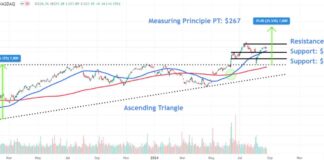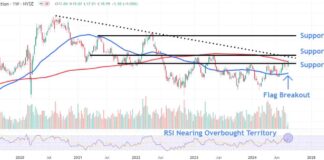Salesforce, the cloud software giant, has recently exceeded analysts’ expectations with its second-quarter results, sparking optimism among industry experts. This positive outlook is driven by several key factors, including the company’s robust financial performance, the potential of its new Agentforce AI platform, and the optimistic price targets set by leading financial institutions.
Record-High Margins and Growth Potential
Following Salesforce’s better-than-expected results, Bank of America (BofA) Securities analysts raised their price target on the stock from $316 to $325. They described Salesforce as “the next quality GARP,” highlighting the company’s strong growth potential at a reasonable price. The bank’s analysts anticipate sustained low-double-digit growth in the future, especially if the overall macroeconomic environment improves.
Salesforce achieved a record adjusted operating margin of 33.7% in the second quarter and raised its full-year guidance to 32.8%. Despite these impressive figures, Jefferies analysts believe that the actual margin could be even higher. As a result, the firm reiterated its “buy” rating for Salesforce and maintained a price target of $350.
The Departure of Chief Financial Officer Amy Weaver
One development that caught the attention of analysts was the surprise departure of Chief Financial Officer (CFO) Amy Weaver. While some viewed this as a neutral or slightly negative development, it raised questions about the company’s future financial strategy. Investors will be closely monitoring Salesforce’s next steps in appointing a new CFO and how this change may impact the company’s financial performance.
Agentforce AI Platform: A Potential Game-Changer
One of the key highlights for Salesforce in the second quarter was the introduction of its Agentforce AI platform. This innovative offering is set to provide autonomous enterprise CRM services starting in October, positioning Salesforce as a leader in leveraging AI technology in customer relationship management.
Analysts at Wedbush Securities see the Agentforce AI platform as a potential profit booster for Salesforce. The firm reiterated its “outperform” rating and set a price target of $315 for the company. According to Wedbush analysts, Salesforce’s focus on monetizing AI across its extensive client base while achieving solid bottom-line growth signifies a significant step forward for the company.
Market Performance and Analyst Price Targets
Despite the positive developments, Salesforce’s stock price experienced a slight decline on Thursday, trading at $257.77. This represents a 2% decrease from the beginning of the year. However, 25 brokers tracked by Visible Alpha have set a consensus price target of $307 for Salesforce, with the majority rating the stock as a buy. This indicates a potential upside of 18% compared to Wednesday’s closing price.
Looking Ahead: Continued Growth and Innovation
As Salesforce moves forward, investors will be closely watching for continued margin growth, the successful rollout of the Agentforce AI platform, and the company’s ability to navigate changing market conditions. With a strong track record of innovation and a focus on customer-centric solutions, Salesforce is well-positioned to capitalize on the growing demand for cloud-based software services.
Investor Sentiment and Market Reaction
The optimism surrounding Salesforce’s future prospects has resonated with investors, who view the company as a key player in the software industry. The positive sentiment is reflected in the consensus price target of $307 set by analysts, suggesting confidence in Salesforce’s ability to deliver strong financial performance in the coming quarters.
Despite the slight decline in the stock price on Thursday, analysts remain optimistic about Salesforce’s growth potential. The company’s solid financial results and innovative product offerings have positioned it as a market leader in the CRM space, attracting interest from both institutional investors and individual traders.
Key Challenges and Opportunities
While Salesforce has demonstrated strong performance in recent quarters, the company faces a number of challenges as it looks to maintain its growth momentum. These challenges include increased competition in the cloud software market, evolving customer preferences, and potential macroeconomic headwinds.
To address these challenges, Salesforce will need to continue investing in research and development, expanding its product portfolio, and enhancing its customer service capabilities. By staying focused on innovation and delivering value to its clients, Salesforce can capitalize on emerging opportunities in the CRM space and solidify its position as a market leader.
In Conclusion
Salesforce’s strong second-quarter results, coupled with the introduction of the Agentforce AI platform, have generated optimism among analysts and investors. The company’s record-high margins, growth potential, and innovative product offerings position it for continued success in the competitive software market.
As Salesforce navigates the evolving business landscape, investors will be closely monitoring the company’s financial performance, product developments, and overall market positioning. With a solid track record of growth and a focus on customer satisfaction, Salesforce is well-equipped to capitalize on emerging opportunities and deliver value to its stakeholders.

















